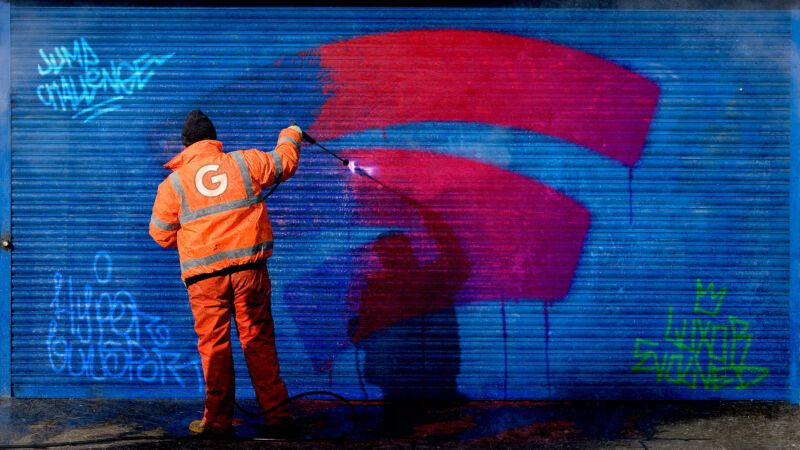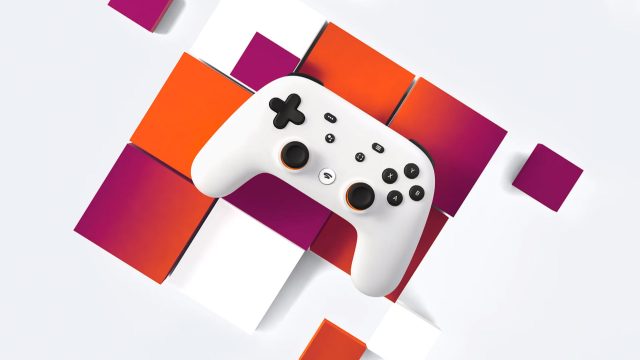
Aurich Lawson/Getty Images
Google Stadia is scheduled for execution this week. The service dies on January 18, and while there will be tons of spurned developers and hours of lost game progress in its wake, the shutdown of Stadia is going about as smoothly as it can go. After refunding every game purchase made on the service, Google is now responding to calls to open up the service’s controller so that it can function as a generic Bluetooth device after Stadia dies. In a post on the Official Stadia forums, a community manager wrote on Friday: “Next week we’ll be releasing a self-serve tool to enable Bluetooth connections on your Stadia Controller. We’ll share details next week on how to enable this features.”
Having the controller live a second life is one of the last things people were asking for since Stadia’s shutdown. As a Stadia product, the controller took the unique approach of connecting directly to the Internet over Wi-Fi, rather than the usual route of connecting to whatever device you’re playing from and then to the Internet. Supposedly, this was a way to shave a few milliseconds off the lag inherent in game streaming. Nothing else in the world uses a Wi-Fi video game controller, so once the Stadia servers shut down, the controller was going to turn into e-waste. It was technically usable as a generic controller if you plugged it into a computer via USB, but nobody wants a wired controller anymore.

Google’s product listing was always upfront about the controller having a Bluetooth chip in it, although it noted that “no Bluetooth Classic functionality is enabled at this time.” All the parts are there to save the controller from the trash heap, and now Google is promising a firmware update to do just that.
In our Stadia review, Ars’ Senior Gaming Editor Kyle Orland called the controller “one of the highlights of the Stadia launch package,” saying it “boasts a solid, well-balanced weight; comfortable, clicky face buttons and analog sticks; ergonomic quality design on the d-pad and shoulder triggers; and strong, distinct rumble motors.” Stadia sales were far below expectations, and these controllers have been piling up in warehouses for years—all Stadia controllers show the date of manufacture on the back, and all known models were made in 2019 during the initial manufacturing run. The controllers were originally pulled from stores after the shutdown announcement, but now that they are getting a second lease on life, we’ll be looking for a fire sale.
-
Stadia’s last game, Worm Game. Look at how blurry and ugly this looks.
-
Oh… I just hit 600mb/s on a speed test, so I don’t think this is me, but whatever.
-
Snaking around. The lag is awful.
-
The menu text is another example of how blurry and ugly this looks. It doesn’t really go away ever.
Google announced not only that the controller would be getting an update, but also… a new game? Yes, on Friday, with about four days left to live, Stadia got a new game. It’s called Worm Game, and it was used as a test platform to develop Stadia. You can play it right now for free! Here’s how Google describes the game:
Play the game that came to Stadia before Stadia came to the world. Worm Game is a humble title we used to test many of Stadia’s features, starting well before our 2019 public launch, right through 2022. It won’t win Game of the Year, but the Stadia team spent a LOT of time playing it, and we thought we’d share it with you. Thanks for playing, and for everything.
Worm Game is just a clone of the classic game Snake. It’s a top-down view of a snake that can move in four directions, you grow each time you eat an apple, and the goal is not to hit anything. Worm Game is actually a great reminder of why Stadia was such a bad service. I gave the game a shot, and it immediately told me my 600mb/s connection was “not stable.” The game was also blurry the entire time, like a low-resolution YouTube video. The lag inherent in game streaming makes a quick-reaction game like Snake feel awful, and you spend a lot of time trying to figure out how early you have to press a button to execute a tight turn. This simple 2D game is probably only a few MB, and any device could install it in under a minute or run it directly in a browser with no installation at all. Instead, streaming it over the Internet will use up gigabytes of data. Just compare Stadia’s Worm Game to the version embedded in Google Search, and the “native” search version is so much nicer.
As for a few other Stadia odds and ends: If you have any data on the service, some games let you move your game data to other platforms. 9to5Google has a great rundown on which games support data export. Phil Harrison, the former Microsoft and Sony executive who joined Google as “VP of Stadia” is still technically employed at Google. Unless Google has some other gaming project he could take on, you have to wonder what his future is at the company. Maybe we’ll see an announcement about that Wednesday.